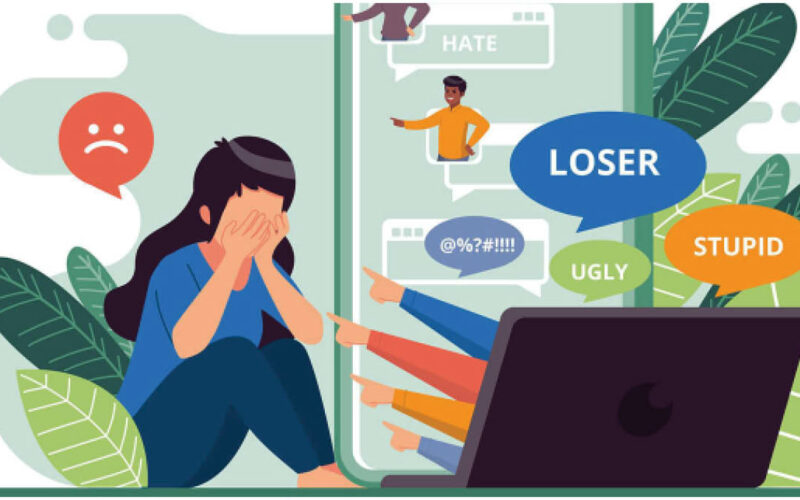Cyberbullying is a growing social problem that has become too common in online communities. Cyberbullying is deliberately and repeatedly inflicting harm using electronic devices, gaming apps, and online social media platforms. It often manifests as hate accounts, hurtful social media posts, online rumors and gossip, and mean comments while gaming. The intention is almost always to embarrass, threaten, humiliate, intimidate, or abuse the intended target.
Cyberbullying leaves young people feeling hurt, embarrassed, and sometimes even scared. Not only do they often blame themselves for the torment and harassment they experience, but they also are left feeling extremely stressed out.
Teens targeted by cyberbullies also may experience physical symptoms in response to the stress you are experiencing. You may complain of stomach-aches, headaches, skin conditions, and other physical ailments.
Your sleeping and eating habits can be impacted by cyberbullying. Sometimes teens who are cyberbullied will crash diet or binge eat as either a way of coping with the cyberbullying or as an attempt to alter the way they look in hopes the cyberbullying will end.
Grades and extracurricular activities may also suffer because of harassment. Teens may skip school or have trouble concentrating on their studies because cyberbullying is consuming all their time and energy.
It’s also not uncommon for cyberbullying victims to feel alone and isolated. Many teens who are targeted report being ostracized at school. This experience, in turn, impacts the self-esteem and feelings of self-worth. Ultimately, cyberbullying can lead to self-harm and even suicidal thoughts.
When you are regularly harassed by others through social media posts, text messages, instant messaging, and blog posts, you start to feel hopeless. You may start to think that the only way to escape the torment is through suicide. Because the risks associated with cyberbullying are so significant, it’s important that your parents take steps to prevent cyberbullying in your lives.
Ways to manage cyberbullying
While there is no foolproof way to prevent yourself from ever being cyberbullied, there are things you can do together to reduce the likelihood you will be targeted. This includes implementing safety measures as well as learning about cyberbullying, the risks associated with experiencing it, and how it can escalate.
It’s also important learn about how to use social media safely and responsibly and what you should do if they are bullied online.
Protect accounts and devices.
When it comes to preventing cyberbullying, and similar behaviours like catfishing, it’s important that you use passwords on everything. Passwords are one of the most effective ways to protect accounts and devices.
You should never share your passwords with anyone, including your best friend. Even though you may trust that friend implicitly, the reality is that friends come and go and there is no guarantee you are going to be friends forever.
Use privacy tools and settings.
No matter what you do online, be aware of the privacy settings and tools offered by the organization. Almost every social media platform including Instagram, Twitter, SnapChat, and TikTok have privacy settings.
Go through each account and set your privacy settings to the most secure settings. This means making accounts private, preventing people from tagging them, requiring other people to get permission before sharing one of their photos, and so on.
Keep personal stuff private.
You should never share your address, cell phone number, or email address online. You should be careful about sharing too much information about where you go to school, especially if you have friends or followers online that you don’t know really well.
Know that people are not always who they claim to be online. Even though the profile photo is of a teenage girl, that doesn’t mean the person behind the account is actually a teenage girl. It could be someone pretending to be a young girl in order to gather information on other teens.
Manage location sharing.
Some smartphones allow users to share their location with friends. This means that if you share your location with people, these people will always know where you are. Know who to share your location with or if you can share it at all.
Likewise, some photos taken with smartphones already contain geotags that indicate where the photo was taken. People can use these photos to determine your location, even if you never mention where the photo was taken.
You need to be mindful about which photos you are sharing and when. For instance, you may want to refrain from posting vacation pictures until you have returned from vacation. This way, you are not letting the entire online world know that no one is at your home for the next two weeks.





